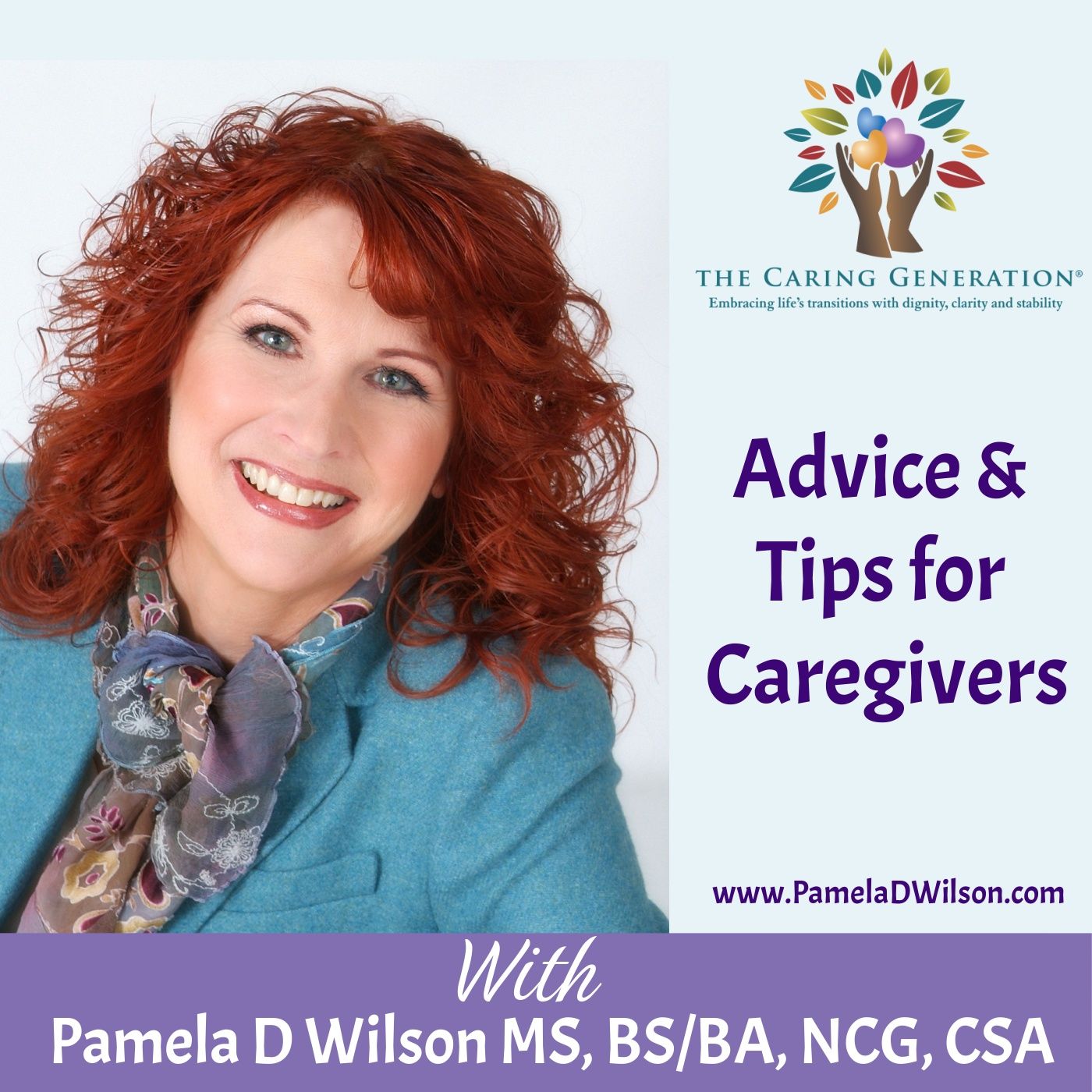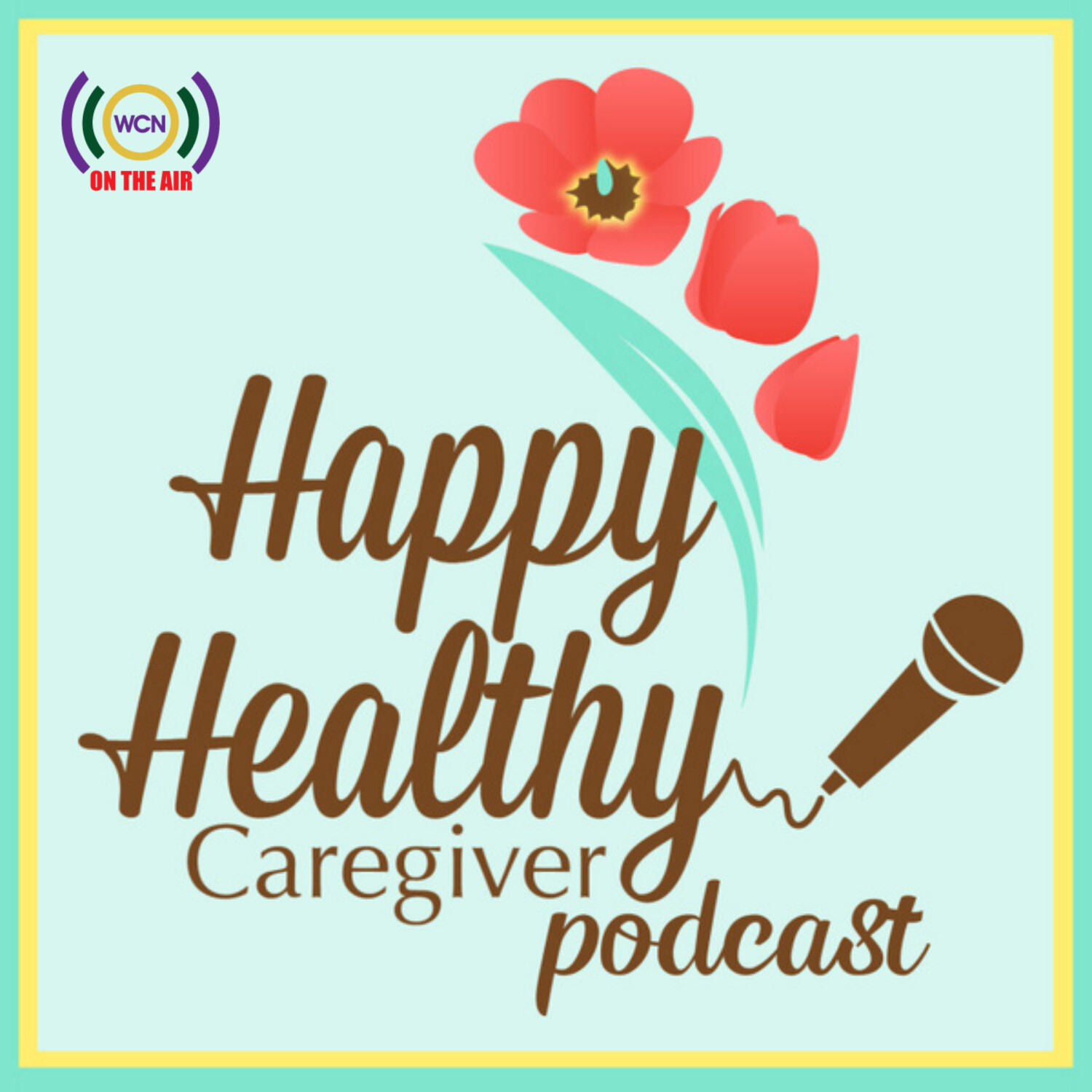
The Caregiver Innovation Show
The Caregiver Crisis Podcast
For family caregivers juggling it all — work, kids, aging parents — this podcast is your lifeline.
We cut through the overwhelm to bring you real stories, practical tips, and tech tools that help you care smarter, not harder.
Hosted by The Caregiver Crisis Initiative, each episode explores simple ways to reduce stress, keep loved ones safe at home, and restore your peace of mind. No fluff. No guilt. Just real help.
🎙️ Featuring expert guests, product spotlights, and caregiver voices.
🧠 Learn what works, when to use it, and why it matters.
🔒 Save the “how” for when you're ready to go deeper inside our private community.
Free Starter Toolkit →
Tech Partner: Electronic Caregiver
Subscribe and join the movement to make care easier — one episode at a time.
🎧 Become a supporter of the show!
https://www.buzzsprout.com/2408853/support
The Caregiver Innovation Show
The Future of Caregiving Isn’t Human or Robot — It’s Both
We explore how AI technology is transforming long-distance caregiving and helping people age in place safely. The emotional burden of caring from afar creates a unique kind of burnout that technology might help alleviate.
• The current "reactive model" of caregiving leaves families scrambling after emergencies have already occurred
• AI systems like Addison can learn daily routines and detect subtle changes that might indicate emerging problems
• These technologies provide real-time dashboards for remote caregivers, offering peace of mind and concrete information
• Unlike cold monitoring devices, AI companions speak with seniors, providing companionship and reducing isolation
• Technology doesn't replace human caregiving—it reinforces it by extending our reach and making care more informed
How might AI-assisted caregiving shift our understanding of independence for older adults, and what new roles might open up for family caregivers managing from afar?
Welcome to the Deep Dive.
Speaker 2:Glad to be here.
Speaker 1:So today we're tackling something really important caring for loved ones when you can't physically be there Long distance caregiving.
Speaker 2:It's a huge issue, yeah, growing all the time.
Speaker 1:We've got an interesting source today, an episode summary titled the Future of Caregiving Isn't Human or Robot, it's Both. It introduces a technology called Addison.
Speaker 2:Right Addison.
Speaker 1:And our mission here isn't just a surface look. We want to really dig into how AI like this might proactively help people age in place and, frankly, maybe ease the burden on families who are far away.
Speaker 2:Okay, let's unpack that.
Speaker 1:Yeah. So starting point, this reality of long-distance care. It's not just logistics, is it?
Speaker 2:Not at all. I mean, the logistics are tough. Sure, coordinating doctors, meds, whatever from another city or state. But the summary touches on the emotional weight.
Speaker 1:The worry.
Speaker 2:Exactly that constant sort of low level anxiety, wondering if they're OK, if something's happened. It's a different kind of burnout than just physical exhaustion.
Speaker 1:Right, and that ties into how care often works now with what somebody calls reactive.
Speaker 2:Yeah, the reactive model. Something happens, a fall, maybe an ER visit, and then everyone scrambles to react, to put support in place.
Speaker 1:But the damage, or at least the scare, has already happened, which is where this idea of being more preventative comes in.
Speaker 2:How do we get ahead of that? How do we shift from just responding to problems to, you know, actually anticipating them or maybe even preventing some things altogether?
Speaker 1:And that's the pitch for Addison, according to the summary.
Speaker 2:Seems like it. It's framed as this AI-assisted system designed specifically for that proactive support for aging in place safely like an extra layer of observation.
Speaker 1:Okay. So how does it do that? How does an AI spot risks early on? The summary mentions detecting risks. What does that actually mean?
Speaker 2:Well, based on the description, it sounds like it learns the person's routines, daily life patterns, and then it looks for significant changes. Maybe someone's spending way less time in the kitchen than usual. Could that indicate they're not eating properly? Or maybe mobility is becoming an issue?
Speaker 1:So it's looking for those subtle shifts things. A quick phone call might miss.
Speaker 2:Exactly those small things that could be early warnings. The idea is catching them before they turn into a crisis.
Speaker 1:And for the family member who's say across the country. The summary mentions dashboards.
Speaker 2:Real-time dashboards, yeah that sounds like a key feature for the remote caregiver, giving them a way to check in, get some peace of mind maybe.
Speaker 1:So it's not just guessing, you have some actual information.
Speaker 2:Right. It provides a window into the day-to-day. Potentially, Instead of just relying on those maybe weekly calls and hoping everything's fine, it could ease some of that constant worry we talked about.
Speaker 1:But it's not just data points and graphs, right? Something really jumped out at me Addison speaks with, not just to your loved one.
Speaker 2:That's crucial. Yeah, it highlights that this isn't meant to be just a cold monitoring device in the corner.
Speaker 1:It interacts.
Speaker 2:It interacts. That suggests a focus on well human connection, companionship, engagement, maybe reducing isolation, not just being a fancy alarm system.
Speaker 1:Which feels much more holistic.
Speaker 2:Definitely it acknowledges the person receiving care is well a person, not just a set of potential risks to track.
Speaker 1:So, wrapping this up, what's the big takeaway here? It seems like it's not about robots replacing people.
Speaker 2:No, absolutely not. I think the summary puts it really well Technology doesn't replace care, it reinforces it. Reinforces it yeah. Tools like Addison, if they work as described, could enhance human caregiving. They can extend our reach, especially over distance. They can provide insights.
Speaker 1:Making human care potentially more effective, more informed.
Speaker 2:Exactly, it's about augmenting our ability to support each other.
Speaker 1:A really interesting way to think about how tech fits into, you know, fundamental human needs like connection and safety. Ok, so a final thought for you, the listener how might integrating AI like this into caregiving actually shift our whole understanding of independence for older adults, and what new roles might open up for family caregivers, especially those managing things from afar? Something to mull over.
Speaker 2:Definitely food for thought.
Speaker 1:Thanks for diving deep with us today.






